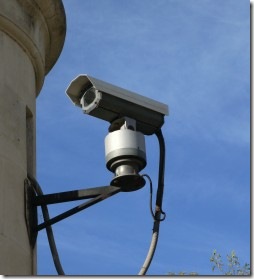Phones have become quite sophisticated devices recently, hence the term “smartphone”. They can connect to the internet, download programs, and keep track of your life. All useful features.
Phones can also be used to spy on you, as some people in United Arab Emirates discovered. In this case a network carrier (Etisalat) sent their customers an update that installs on their BlackBerry phones. They told their customers that the update was “required for service enhancements.”
What they didn’t tell their customers is that the update contains spyware made by a company called SS8 Networks. This spyware sent information to their company using the phone (which incidentally drained their batteries from uploading so much data).
It’s still unclear what this spyware actually does, or why it was installed on their customers’ phones. You can read more information on this incident here.
In theory phone spyware could activate the phone’s microphone and/or camera and send information to another site. Or it could intercept SMS’s and phone calls. And so many phones these days also GPS receivers in them so spyware could also theoretically keep track of your location. This is all scary stuff.
There isn’t much we can do about this threat at the moment, if your life or work involves privacy then consider using an old phone with limited features instead of today’s smartphones.
 A business owner in USA had been twittering about his upcoming holiday, and provided further updates when they’d left home for their holiday. Then their home was burgled. Was is chance or did someone know the house would be empty via Twitter?
A business owner in USA had been twittering about his upcoming holiday, and provided further updates when they’d left home for their holiday. Then their home was burgled. Was is chance or did someone know the house would be empty via Twitter? Often these same sites will ask for other passwords, in an effort to help you find more of your friends and family. For example, when you sign up to
Often these same sites will ask for other passwords, in an effort to help you find more of your friends and family. For example, when you sign up to  This one of those legal spyware programs I mentioned
This one of those legal spyware programs I mentioned